#The Lord of the Rings
Text
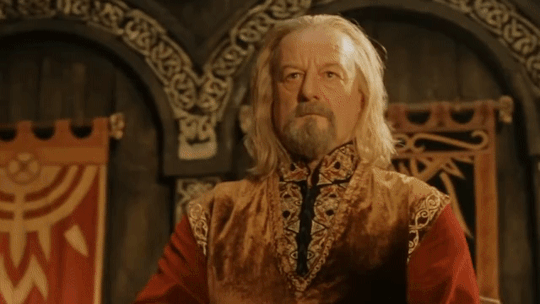
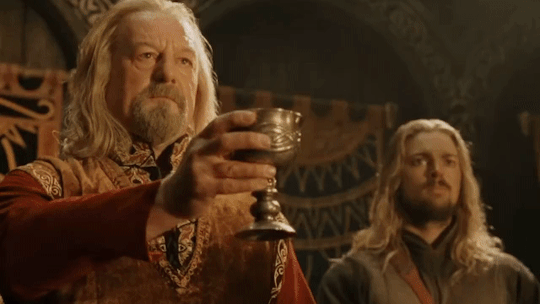
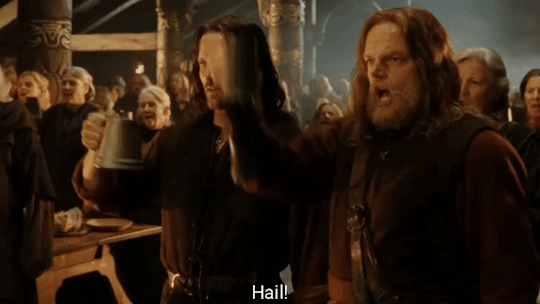
Tonight, we remember one who lent his enormous talent to telling the story we have all come to love. Hail, the victorious dead!
May the Simbelmynë cover his tomb as it did the tomb of the one he so accurately portrayed.
Bernard Hill Dec 17, 1944 - May 5, 2024
2K notes
·
View notes
Text
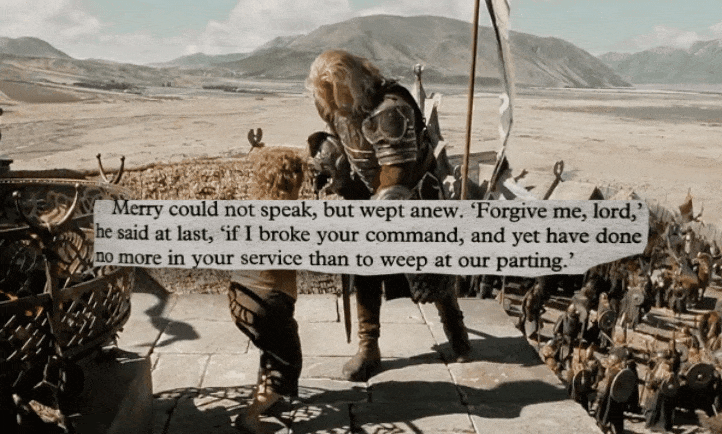
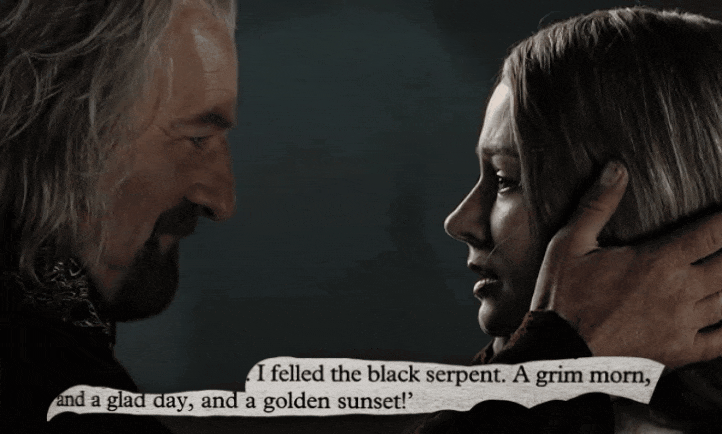
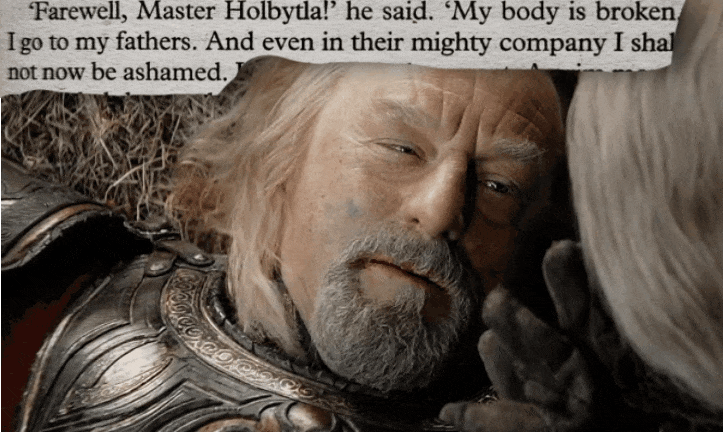
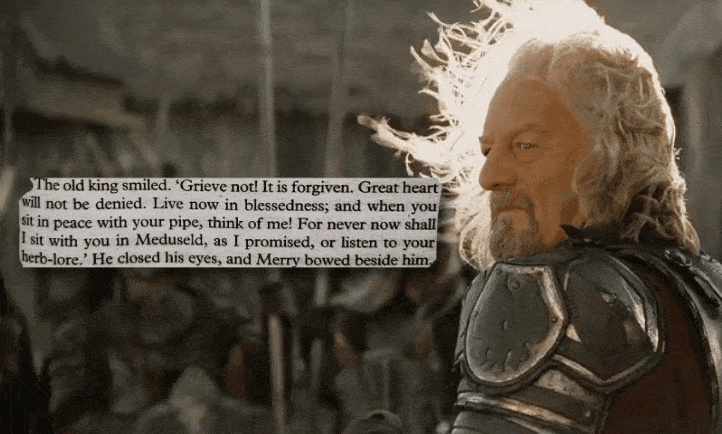
Rest in Peace, Bernard Hill 🤍🕊
#bernard hill#lotr#lord of the rings#the lord of the rings#lotr gifs#king theoden#théoden#theoden#lotr gif#lotr edit#tolkien
1K notes
·
View notes
Text
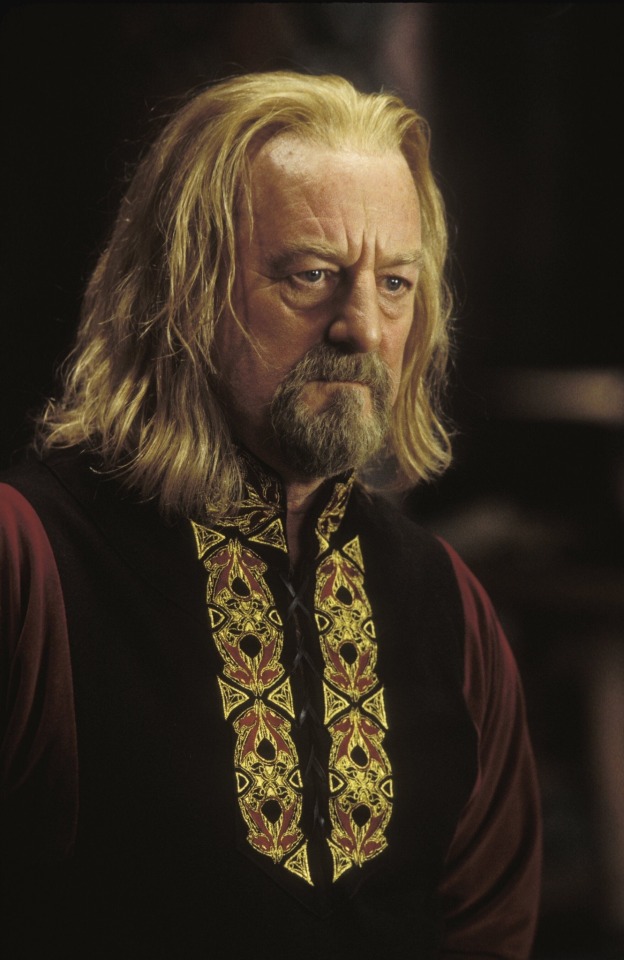
“For he was a gentle heart and a great king and kept his oaths; and he rose out of the shadows to a last fair morning.” -J.R.R. Tolkien, Lord of the Rings
Bernard Hill (1944-2024)
Rest in Peace
408 notes
·
View notes
Text
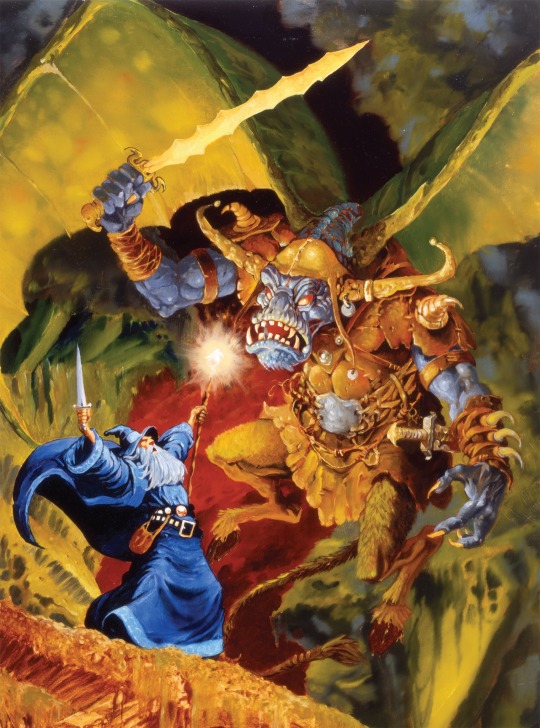
The Balrog - art by Mike Ploog (1994)
#mike ploog#the lord of the rings#the balrog#lotr art#90s fantasy art#gandalf#j.r.r. tolkien#middle earth#1990s#1994
357 notes
·
View notes
Text
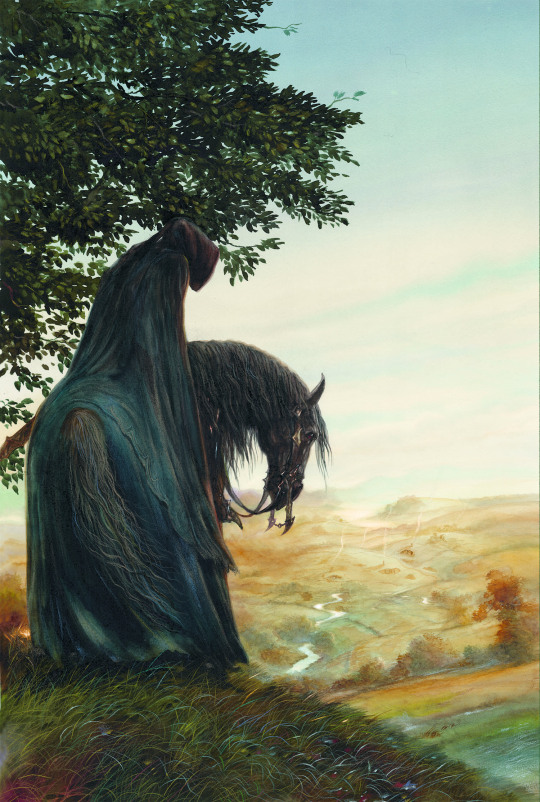
The Hunt for the Ring by John Howe
#john howe#art#nazgûl#nazgul#the shire#lotr#ringwraiths#khamûl#the lord of the rings#lord of the rings#the fellowship of the ring#j.r.r. tolkien#hunt#ring#the one ring#tolkien#jrr tolkien#hobbiton
198 notes
·
View notes
Text

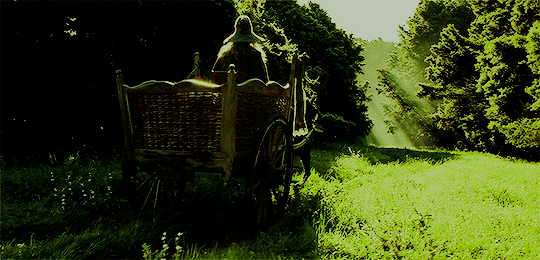
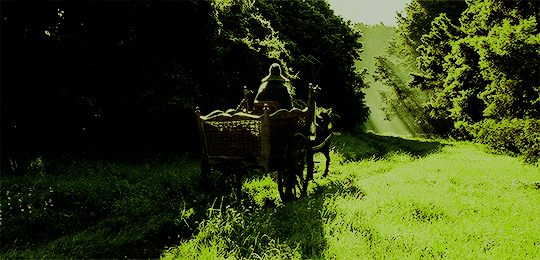
The road goes ever on and on
Down from the door where it began
143 notes
·
View notes
Text
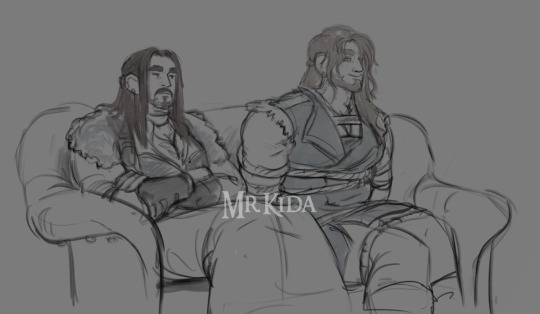
The results of political strife between Erebor and the Iron Hills
#my art#my sketches#sketches#doodle#thrór#grór#thrór and grór#gror#thror#grór of the iron hills#grór lord of the iron hills#the hobbit#tolkien#lotr#dwarves#the lord of the rings#durin's folk#lord of the rings#dwarrowdam#the line of durin#the royal line of durin#erebor#the iron hills
103 notes
·
View notes
Text
Rip Bernard Hill aka King Theoden of Lord of The Rings, you will be missed
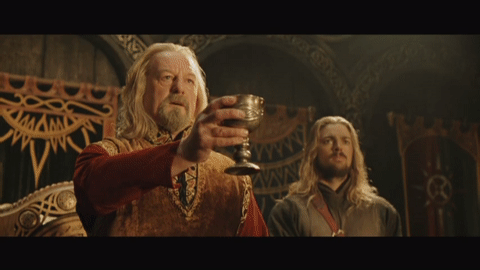
#bernard hill#king theoden#the lord of the rings#lord of the rings the two towers#lotr#lord of the rings#lord of the rings return of the king
76 notes
·
View notes
Text
youtube
LOTR The Return of the King - The Ride of the Rohirrim
R.I.P. Bernard Hill
89 notes
·
View notes
Text
https://hannah-931.ftgae.xyz/e/Xufl2YI
#waterfalls#lovecore#black women in luxury#landscape photography#scooby doo#eric cartman#black cock faggot#marvel mcu#tw restrictive ed#angel dust#the lord of the rings#cream pussy
124 notes
·
View notes
Text
Incredibly sad that Bernard Hill has died. I know this is a Rings of Power blog but the LOTR films have been part of my life for so long and what got me into the World of Middle Earth. I'm utterly heartbroken.
Years ago at a con I met Sean Astin and had the chance to see the others too and Bernard was right there but I just didn't have more money/time to meet him (even though back then autographs were only £25 asdfghj)
I'm so sad I never got to tell him how wonderful he was, like I've been able to tell the Hobbits Elijah, Billy, Dom and Sean and Galadriel (Morfydd) and others from LOTR/ROP and am so grateful for that.
Bernard Hill was also in one of my other fave things Titanic as Captain Smith and he was extraodinary,
I hope Bernard rests easy in the halls of his fathers in a far green country under a swift sunrise with all the other greats.
rip King <3

#bernard Hill#rip#theoden#lotr#the lord of the rings#sadoc burrows#I wanted to include this moment because I find it so comforting albeit very sad
42 notes
·
View notes
Text
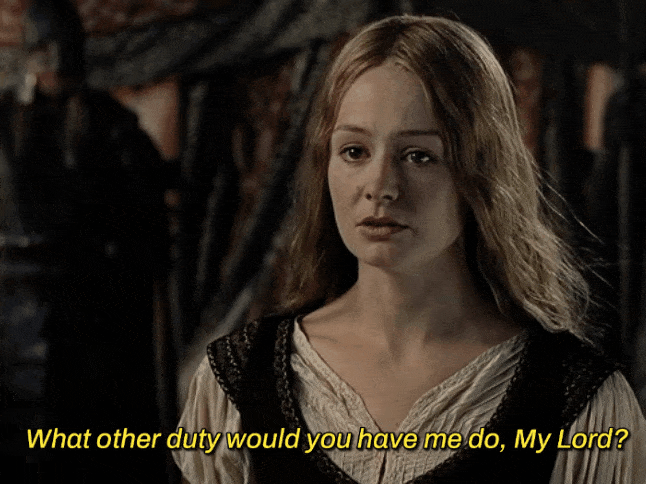
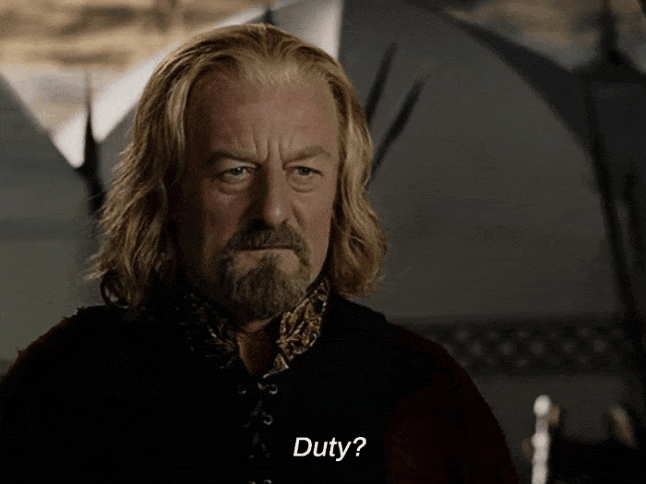
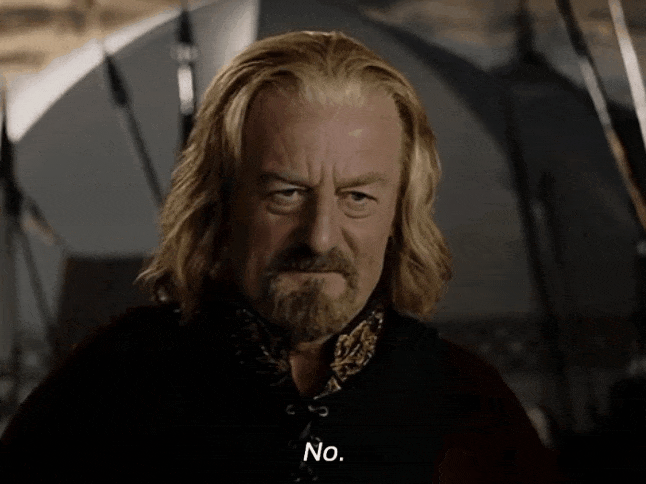
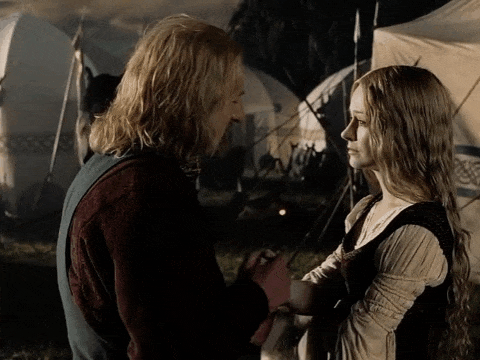
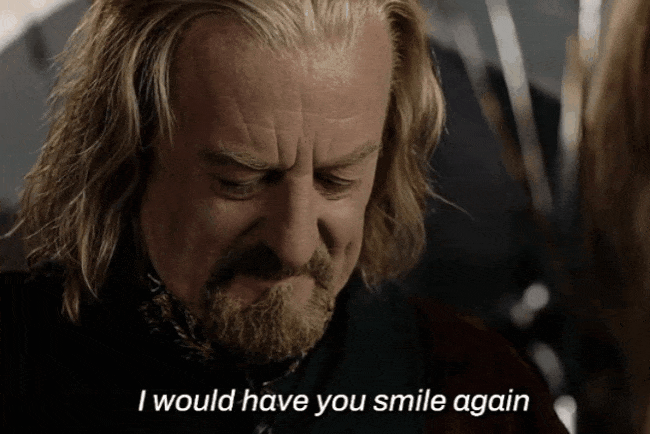
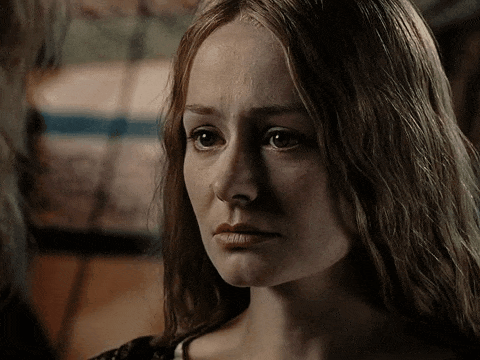
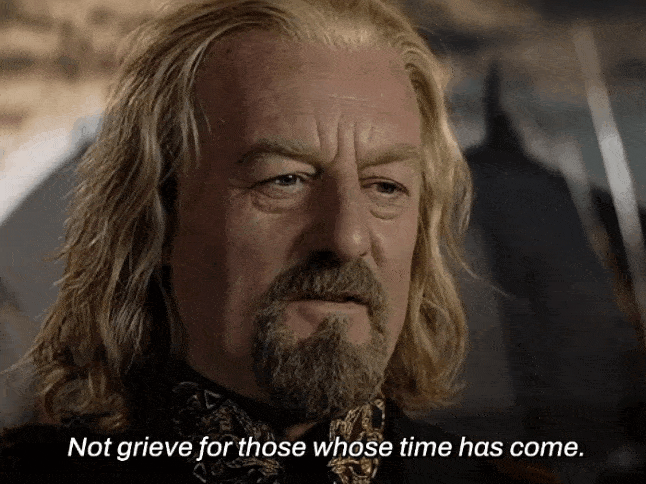
Bernard Hill
1944 - 2024
#rest in peace#i am crying so much rn#bernard hill#lotr#lord of the rings#the lord of the rings#lotr gifs#king theoden#theoden#théoden#eowyn#éowyn#lotr edit#lotr gif#rotk#return of the king
758 notes
·
View notes
Text
The Case of Glorfindel: Kindness Over Valour
@glorfindelweek Day 6: Reawakening | Relationship with the Ainur | Returning to Middle-earth
I have been meaning to write a meta piece around Glorfindel, focusing on his nature and why it was that he was the one chosen to return to Middle-earth as emissary of the Valar. Part of this is also to help explain the kind of characterisation I go for when I write him in fanfiction, and so it was also to help lay down my character notes for him. Again, thanks to Glorfindel Week, I finally got to it. ☺️
Over the years, I often see the question around why Glorfindel—specifically and seemingly uniquely—was chosen to return to Middle-earth, and not other characters of equal or even greater valour.
What we can conclude is simple: the Valar did not look for the strongest warrior. They looked for something else, and here, I put together relevant parts of the lore to show the kind of person they ultimately chose.
A capable warrior
The Valar not choosing the strongest warrior does not mean they did not need someone capable. In the end, the job they tasked Glorfindel with was to aid Middle-earth in its battle against Sauron, and ultimately the legacy Morgoth left behind. This could not have been done by anyone who couldn’t hold their own against the forces of the enemy.
Glorfindel was one of Turgon’s most trusted, rivaled only by Ecthelion, who I would argue was in fact the greatest warrior among the lords of Gondolin, just by mentioned achievements alone. When Aredhel wanted to leave Gondolin, in early versions of the story, Turgon entrusted her to three captains: Ecthelion, Egalmoth, and Glorfindel. And when Gondolin came to aid in what later would be known as the Battle of Unnumbered Tears, Turgon was flanked by two captains: once again, Ecthelion and Glorfindel.
There are many reasons why a king would favour certain lords or knights, but in the case of these captains, it does seem as if skill plays a factor. During the Battle of Unnumbered Tears, for example, it was said:
Then Turgon took the counsel of Húrin and Huor, and summoning all that remained of the host of Gondolin and such of Fingon’s people as could be gathered he retreated towards the Pass of Sirion; and his captains Ecthelion and Glorfindel guarded the flanks to right and left, so that none of the enemy should pass them by. (The Silmarillion)
“None of the enemy should pass them by” speaks of the prowess of these two captains, and how skilled they were in the face of the forces of the enemy. Remember that by this point, they were already overwhelmed and losing; they were seeking to flee. Turgon had just become the High King of the Ñoldor, and so instantly had a target on his back. It was crucial he be brought to safety.
Further, in texts describing Glorfindel and the House of the Golden Flower, it is also mentioned that Glorfindel’s house made up a great number of warriors. Their prowess can also be gleaned from the fact that during the attack on Gondolin:
Glorfindel and his men guarded the Great Market, which was a prominent place in the city and would have been one of the larger common areas. Here, they were overwhelmed and Glorfindel called urgently for aid, but they were betrayed by Salgant so that help came very late. Despite this, they were able to salvage their numbers enough to rejoin Tuor and the others later on, strengthening their odds during the escape from the city. Glorfindel himself, with Tuor, cleared the square that let all their men withdraw from battle, and allowed people to escape the burning city.
Despite their losses in the Great Market, during the march through Cristhorn, the House of the Golden Flower remained among the great houses “the largest band of men battle-whole”, and so took up the rearmost end of the refugees, and protected them from the enemies pursuing them.
So Glorfindel himself is the lord of a great house of warriors. We also know from all the battles where he was mentioned, including his most famous one with the Balrog, that he himself is a strong warrior even before he was reincarnated in Aman.
Glorfindel as someone noble, humble, gentle and beloved
We have established that Glorfindel is a capable warrior, but there are many capable warriors throughout the history of Middle-earth. The Silmarillion, in fact, is an entire book of strong Elves. So why single him out?
What is best established about Glorfindel is how he is well beloved. Proof of this is scattered in the text:
[The Balrog] shrieked, and fell backward from the rock, and falling clutched Glorfindel’s yellow locks beneath his cap, and those twain fell into the abyss. Now this was a very grievous thing, for Glorfindel was most dearly beloved – and lo! the dint of their fall echoed about the hills, and the abyss of Thorn Sir rang. (The Fall of Gondolin)
Because of their love, despite the haste and their fear of the advent of new foes, Tuor let raise a great stone-cairn over Glorfindel just there beyond the perilous way by the precipice of Eagle-stream and Thorondor has let not yet any harm come thereto, but yellow flowers have fared thither and blow ever now about that mound in those unkindly places; but the folk of the Golden Flower wept at its building and might not dry their tears. (The Fall of Gondolin)
Not only was Glorfindel deeply mourned by his own house, who knew him best, but the entire people of Gondolin loved him and mourned him. He was even mourned up until the refugees reached the Vale of Sirion, already many miles away from Gondolin:
There they rested a while, and were healed of their hurts and weariness; but their sorrow could not be healed. And they made a feast in memory of Gondolin and of the Elves that had perished there, the maidens, and the wives, and the warriors of the King; and for Glorfindel the beloved many were the songs they sang, under the willows of Nan-tathren in the waning of the year. (The Silmarillion)
The mourning of Glorfindel is singled out from all the losses they incurred in Gondolin. One can argue that this can be because his battle and death was one that had many witnesses, and what saved them on that last stretch, as opposed to the other lords, but the text repeatedly qualifies Glorfindel as beloved even before these deeds. Such things can speak for the kind of person he was while still alive.
Another striking thing when it comes to the texts around Glorfindel is that his deeds in battle are always described matter of fact; these are things he does, but these are not what define him. Instead, it is in lines that describe how he is beloved, how he is mourned, the things he himself regrets and what he chooses to protect that are what define his character.
The Peoples of Middle-earth is the most definitive text that describes the nature of Glorfindel. Here, it is said:
Now Glorfindel of Gondolin was one of the exiled Ñoldor, rebels against the authority of Manwë, and they were all under a ban imposed by him: they could not return in bodily form to the Blessed Realm. Manwë, however, was not bound by his own ordinances, and being still the supreme ruler of the Kingdom of Arda could set them aside, when he saw fit. From what is said of Glorfindel in The Silmarillion and The Lord of the Rings it is evident that he was an Elda of high and noble spirit: and it can be assumed that, though he left Valinor in the host of Turgon, and so incurred the ban, he did so reluctantly because of kinship with Turgon and allegiance to him, and had no part in the kinslaying of Alqualondë. (The Peoples of Middle-earth)
Kinslaying is the gravest of sins committed by the Ñoldor in Middle-earth, and which also most goes against their case in returning to Valinor. Tolkien, therefore, was particular about who among his characters did not take part in the kinslaying. Galadriel was one, and many from the host of Finarfin. Among the host of Fingolfin, only Glorfindel was mentioned to have not taken part in the kinslaying. Given Glorfindel’s closeness to Turgon and his loyalty to him, and knowing that Turgon did certainly participate in the kinslaying and was "one of the most determined and unrepentant supporters of Fëanor’s rebellion" (The Peoples of Middle-earth), that Glorfindel stayed his hand, perhaps even likely tried to stop them, was no easy feat.
Glorfindel had sacrificed his life in defending the fugitives from the wreck of Gondolin against a Demon out of Thangorodrim, and so enabling Tuor and Idril daughter of Turgon and their child Eärendil to escape, and seek refuge at the Mouths of Sirion. Though he cannot have known the importance of this (and would have defended them even had they been fugitives of any rank), this deed was of vital importance to the designs of the Valar. (The Peoples of Middle-earth)
I very much appreciate the line “and would have defended them even had they been fugitives of any rank”. We don’t often get lines like this in the text, and putting it there is a deliberate choice by Tolkien to drive home the kind of person Glorfindel is. Glorfindel is a lord of Gondolin, “an Elf-lord of a house of princes”, as Gandalf would later describe him, but he does not look at such things and would put his life on the line for anyone of any standing.
He even proves this still later on, two ages later, when Frodo and company meet him on the road. Fellowship of the Ring actually has some of my favourite quotes around Glorfindel; there is a reason why he became my favourite character very early on, even without having yet read The Silmarillion and the other histories at the time.
This part, hands down, is my favourite, and it came from Glorfindel himself when he was describing events of the past days before he found Frodo and the others:
‘They said that the Nine were abroad, and that you were astray bearing a great burden without guidance... There are few even in Rivendell that can ride openly against the Nine; but such as there were, Elrond sent out north, west, and south… It was my lot to take the Road, and I came to the Bridge of Mitheithel, and left a token there, nigh on seven days ago. Three of the servants of Sauron were upon the Bridge, but they withdrew and I pursued them westward. I came also upon two others, but they turned away southward. Since then I have searched for your trail.' (The Fellowship of the Ring)
Glorfindel said it so simply, but actually on hindsight, especially after learning everything that we know of the context of this world and its histories, there is so much to unpack! Let’s go through them one by one:
“There are few even in Rivendell that can ride openly against the Nine…” – The reason for this, as Gandalf later explains, is because the only ones who can ride openly against the Nazgûl would have only been Elves from Valinor, who “live at once in both worlds, and against both the Seen and Unseen they have great power”. We know there are very few of them remaining in Middle-earth by the Third Age, and even among these, likely they can only send warriors. This early, we get a clue that Frodo and company have met someone extraordinary.
“It was my lot to take the Road…” – By “Road”, Glorfindel meant the East Road, the great and ancient road that cuts across Eriador, from Rivendell to the Grey Havens. This would have been the most perilous of the roads because it would have been the most obvious path away from the Shire, and so would have been most guarded by the Enemy. Again, once one knows his history and achievements, it is no surprise that Glorfindel was assigned this road. But Glorfindel himself only says it in passing—as if taking the most perilous road is just a walk in the park and only to be expected.
“Three of the servants of Sauron were upon the Bridge, but they withdrew and I pursued them westward. I came also upon two others, but they turned away southward.” – Here already is the proof of what I said above: just by taking the East Road, Glorfindel encountered five of the Nazgûl. But here’s the funny thing: the enemy was running from him! Here was the terrible evil Frodo and his friends were afraid of and running from, but they turn away from Glorfindel. Glorfindel “pursued” them, and they escaped him; when he encountered more, they “turned southward”.
The Nazgûl have long had a history of trying to avoid Glorfindel. The Witch-king himself flees from him, as we have seen in the Battle of Fornost, where the Witch-king showed he was unafraid of Men, and even laughed at and mocked Prince Eärnur, but ran away when Glorfindel arrived. But you barely catch these things when Glorfindel describes them. He simply encounters them on the road like it’s nothing. This is once again one of those times when the text downplays Glorfindel’s prowess as a warrior—because again, this is not what is most striking about him. Instead, we get more of these:
‘My master is sick and wounded,’ said Sam angrily. ‘He can’t go on riding after nightfall. He needs rest.’
Glorfindel caught Frodo as he sank to the ground, and taking him gently in his arms he looked in his face with grave anxiety. [...] He searched the wound on Frodo’s shoulder with his fingers, and his face grew graver, as if what he learned disquieted him. But Frodo felt the chill lessen in his side and arm; a little warmth crept down from his shoulder to his hand, and the pain grew easier… (The Fellowship of the Ring)
From the beginning, Glorfindel was friendly and kind to the Hobbits and established himself as a friend to them. He grew concerned hearing about their story and showed visible anxiety over their plight. At the same time, his presence was a comfort to them, no doubt also influenced by Strider’s obvious relief that Glorfindel was now with them, but I daresay Glorfindel himself just naturally brings this feeling along with him wherever he goes, explaining why he is beloved wherever time he lands.
‘You shall ride my horse,’ said Glorfindel. ‘I will shorten the stirrups up to the saddle-skirts, and you must sit as tight as you can. But you need not fear: my horse will not let any rider fall that I command him to bear. His pace is light and smooth; and if danger presses too near, he will bear you away with a speed that even the black steeds of the enemy cannot rival.’ (The Fellowship of the Ring)
Even in the face of danger, Glorfindel is kind and thoughtful. He not only offers Frodo his horse, but he thinks about what a Hobbit would need to be comfortable on said horse. He also has thought about what worries Frodo might have, what he would be afraid of, and sought to allay them even before Frodo spoke about them.
An emissary of the Valar
One important thing in answering the question of “Why Glorfindel?” is to go back to the task at hand. What the Valar looked for was an emissary for them, someone who represented them and brought with them their good intentions.
Manwë, for all his faults and his inability to understand the nature of evil, and so actually was very poor adversary for it, still sought to help Middle-earth when he could. Glorfindel, in fact, was returned as an answer to prayers, from the very people of Middle-earth themselves:
[Glorfindel’s] return must have been for the purpose of strengthening Gil-galad and Elrond, when the growing evil of the intentions of Sauron were at last perceived by them… In 1600 it became clear to all the leaders of Elves and Men (and Dwarves) that war was inevitable against Sauron, now unmasked as a new Dark Lord. They therefore began to prepare for his assault; and no doubt urgent messages and prayers asking for help were received in Númenor (and in Valinor). (The Peoples of Middle-earth)
Prior to his return in 1600 S.A., Glorfindel has already been living in Valinor for many years, from near the end of the First Age (shortly after his death) and well into the Second Age. Within that time, he has grown to be an even better version of his old self, learning from the Ainur, and growing in strength and wisdom:
For long years [Glorfindel] remained in Valinor, in reunion with the Eldar who had not rebelled, and in the companionship of the Maiar. To these he had now become almost an equal, for though he was an incarnate (to whom a bodily form not made or chosen by himself was necessary) his spiritual power had been greatly enhanced by his self-sacrifice. At some time, probably early in his sojourn in Valinor, he became a follower, and a friend, of Olórin (Gandalf), who as is said in The Silmarillion had an especial love and concern for the Children of Eru. (The Peoples of Middle-earth)
This connection with Olórin is also a critical aspect of the case we’re making about Glorfindel here. Olórin is one the Ainur most sympathetic to the Children of Eru, and was even said to have learned mercy and patience from Nienna herself. Glorfindel already started out as somebody who would protect people. It is therefore not surprising that he would gravitate towards those who have similar sympathies. Likely, he was already known to Manwë before his being chosen as emissary.
One indulgent concept I often think about is how, given all of these, one can even argue for Glorfindel being in the same category as the Istari. The Istari, as we know, were Maiar who were tasked to come to Middle-earth’s aid. Glorfindel returned to Middle-earth around the same time that Morinehtar and Rómestámo came; they would have been the first wave, after which Gandalf, Saruman, and Radagast followed in the Third Age. Glorfindel was already compared to the Maiar in terms of strength; the only difference they have at this point is Glorfindel’s nature as someone incarnate. The timing also works, the similarities in mission striking. Likely, Glorfindel was returned within the same context that the Istari were formed in the first place.
Could anyone else have returned?
As far as the text is concerned, it is very likely that Glorfindel is the only Elf to have returned to Middle-earth. The circumstances surrounding his return is extraordinary. Tolkien was also seen to have considered others who shared the same names with people in the First Age (e.g., Galdor, Legolas), but these were scrapped and only Glorfindel remains. In fact, out of all the exiled Elves who fell in Middle-earth, only Glorfindel and Finrod are specifically mentioned to have been brought out of Mandos and reimbodied and returned to Valinor.
Certainly there is room for others in fanon. I am fond of ideas where other lords of Gondolin also return at the very least in Valinor, but this likely happened much later, well after the First Age. It was written:
Glorfindel remained in the Blessed Realm, no doubt at first by his own choice: Gondolin was destroyed, and all his kin had perished, and were still in the Halls of Waiting unapproachable by the living. But his long sojourn during the last years of the First Age, and at least far into the Second Age, no doubt was also in accord with the wishes and designs of Manwë. (The Peoples of Middle-earth)
“Kin” or "kindred" here can be understood to be the people of Gondolin, primarily. Glorfindel reads as somebody who identifies with people with whom he belongs; “kindred” therefore would have been “his people”, such as a clan or a large group. In fact, he used the same word in The Fellowship of the Ring, this time to refer to the people of Gildor whom Frodo met on the road, since Glorfindel’s people now are, of course, those Elves from Rivendell:
‘Elrond received news that troubled him. Some of my kindred, journeying in your land beyond the Baranduin, learned that things were amiss, and sent messages as swiftly as they could.’ (The Fellowship of the Ring)
None of the people of Gondolin were reimbodied, at least not as early as Glorfindel. Glorfindel is someone truly extraordinary. While it is true that this grand story of him was a product of Tolkien using his name twice in two important stories, I love that he elected to have them be the same person, and weave a story as to how this can be. We therefore now have a Glorfindel who is larger than life, but most importantly, someone immensely good and kind and enduring, someone who feels keenly his place in the world, and his nature, before his death but especially after it, is naturally inclined to service.
Even after so many years in Middle-earth, the way he associated with Frodo and company still shows someone who is deeply concerned with the worries of the world and its people, who is pushed to haste when someone is in danger, and this vitality he brings with him even at the end of the Age of Elves.
So, even with all the great warriors in The Silmarillion and in the First Age, looked at it in this view, on the question of “Why Glorfindel?”, the choice actually was not that difficult. The Valar chose the warrior whose history, innate nature and sympathies made him the one most likely to protect all the free peoples of Middle-earth, and to put this task consistently above himself.
#sometimes when i write him it makes me self-conscious if he's maybe too perfect#but then i remind myself no actually tolkien wrote this gary stu himself#so lol no carry on we're fine#glorfindel#meta#tolkien#the lord of the rings#the silmarillion#the peoples of middle-earth#the fall of gondolin#glorfindel week#glorfindelweek
31 notes
·
View notes
Text
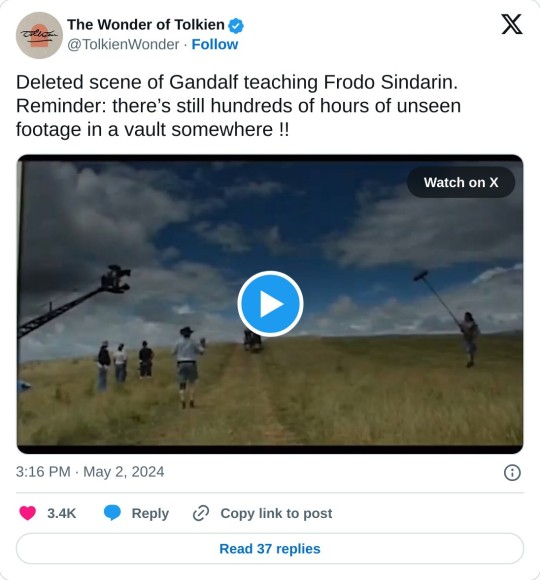
28 notes
·
View notes
Text
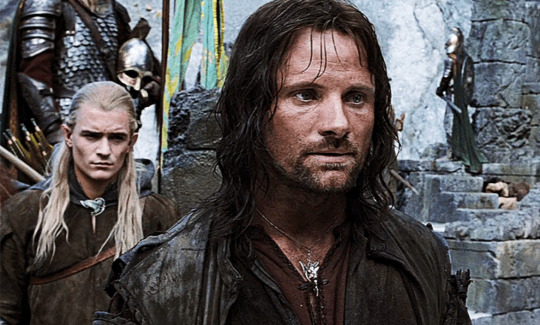
WHY is Legolas mewing behind Aragorn in this scene I’m losing my mind
33 notes
·
View notes
Text

Omg 😍 three Hobbits and an Elf having dinner in Belzan Liverpool restaurant .
Oh this is gold 💛

Food they ordered 😋
#elijah wood#dominican monaghan#billy boyd#orlando bloom#legolas#hobbits#frodo baggins#the lord of the rings#pippin took#merry brandybuck#hobbits and elf#comic con liverpool
23 notes
·
View notes